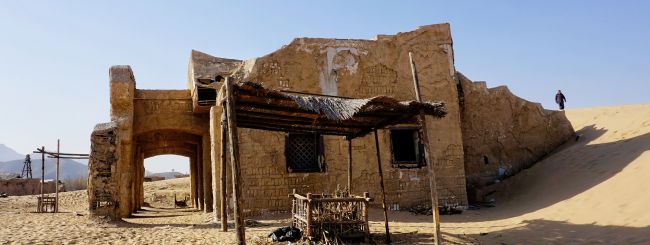בס”ד
Who was Job
This question is not very difficult. After all, there is a whole book in the Tanakh written about him. Job was a rich man with a large family. A righteous man. Satan comes to G-d and convinces Him to test Job’s faith, for wouldn’t every man serve and honor G-d when things are going well for him, but how would Job react when things were not going well for him. And Job overcomes several tragedies. For example, he loses his children, and his health. His friends come to him and discuss with him his situation. An important question lies on the table:
Why does the righteous suffer?
Job is tossed back and forth between acceptance and anger. G-d explains to Job at the end of the book that G-d’s ways are not always comprehensible to man, man’s ability to think is now very limited with G-d. In the end, Job gets well and at the end of the book, he has a new family and good new life.
Why does the righteous suffer?
It is perhaps one of the oldest and most difficult questions man can ask. Even Moses wrestled with this question. Chazal said:
Lastly, Moses requested that the ways in which G-d conducts the world be revealed to him, and He granted it to him, as it is stated: “Show me Your ways and I will know You” (Exodus 33:13). Moses said before G-d: Master of the Universe. Why is it that the righteous prosper, the righteous suffer, the wicked prosper, the wicked suffer? …. The righteous person who suffers is one who is not a completely righteous person. Because he does have some transgressions, he is punished in this world so that he will receive a complete reward in the World-to-Come. [ This is because the punishment in this world is to purify them.[1]]The wicked person who prospers is one who is not a completely wicked person. G-d rewards him in this world for the good deeds that he performed, so that he will receive a complete punishment in the World-to-Come. Finally, the wicked person who suffers is a completely wicked person. Since he performed absolutely no mitzvot and deserves no reward, he receives only punishment both in this world and in the World-to-Come (Maharsha).[2]
In short, the righteous suffers so that it will go well for him. So for his own good, only we don’t always understand it. It reminds me of a story I read some time back (I don’t remember the source) on this subject. It involved a mother trying to feed her child. However, the child did not want to eat at all. He did not like the spoon and the porridge did not taste good to him. The mother tried with great difficulty to give a bite of food each time to the child, who only roared. An outsider might see the whole thing as negative. But the mother knew that after being sick, the child needed to eat to gain strength. The porridge contained medication to speed up recovery. However, the child did not understand that the mother had his best interests at heart.
The age and life experience of the mother and the child did not differ by more than 20 years. Still, the child could not understand why the mother was “teasing” him with the porridge. How then can we understand G-d who is so much greater than us.
Why is the story of Job connected to Tisha B’ Av
The question that can be asked for a righteous person can also be asked for a righteous nation. Why must the Jewish people endure so much suffering over the centuries. The destruction of the Temple, the diaspora and all the grief that accompanied it.
Job’s suffering was incomprehensible and so is the suffering of the Jewish people incomprehensible. Job, however, remained confident in G-d’s justice, and so did the Jewish people. They tenaciously clung to the Torah and mitzvos as their only way of life and it has not weakened their belief in and confident hope of the ultimate true and complete geula through our righteous Moshiach, when it will become apparent that the whole long and dark exile was a blessing in disguise.[3]
That’s what we see at the end of the book, G-d speaks to Job and advises him that the ways of the Divine cannot be understood by Man. Hashem’s works – whether they appeared to Job to be good or evil – are part of G-d’s master plan and are mysterious to earthly beings, and one cannot question their legitimacy or wisdom.[4]
But the result is that Job was blessed with greater blessings than he was blessed before.
Thus, the L-rd blessed the latter years of Job’s life more than the former. He had fourteen thousand sheep, six thousand camels, one thousand yoke of oxen, and one thousand she-asses. He also had seven sons and three daughters…. Afterward, Job lived one hundred and forty years to see four generations of sons and grandsons. So Job died old and contented. (Job 42: 13-17)
So will be the blessings for the people of Israel in time of Messiah.
May it be Your will Eternal that the Temple may be rebuilt in our days. That the sacrifices may be restored as in former times. But that until then the prayers of Thy people and of the righteous among the nations may be pleasing to Thee.
By Angelique Sijbolts
Sources:
[1] Taanit 11a
[2] Berakhot 7a 25 en 28
[3] Why do the Righteous Suffer and the Wicked Prosper?
[4] The Connection Between Tisha B’Av and Sefer Iyov (Job)
See also the blog:
What Is Tisha b’ Av? and Parshat Va’etchanan – Nachamu, Nachamu
